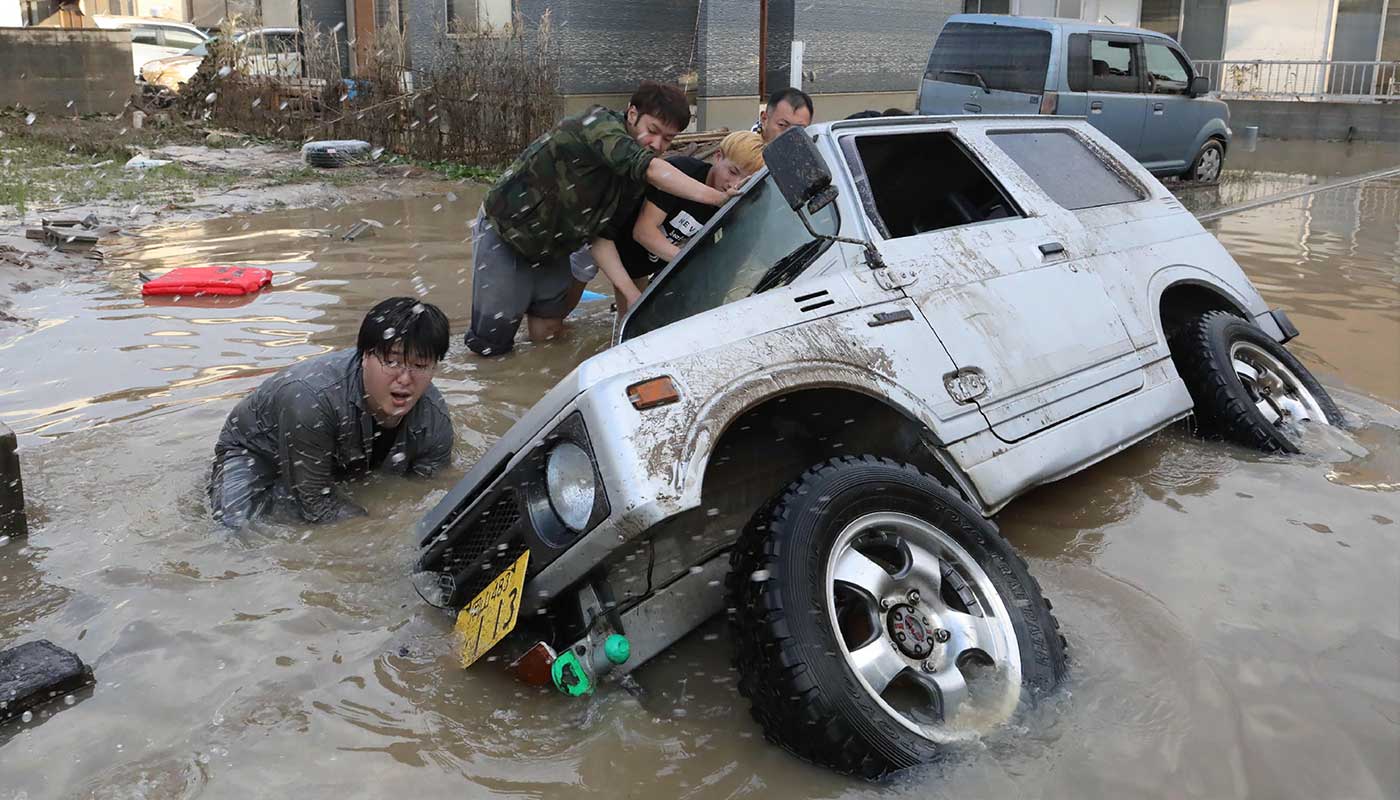‘Grim’ UN report warns of weather disasters every year
Climate change panel says coastal regions will have to be sacrificed

A free daily email with the biggest news stories of the day – and the best features from TheWeek.com
You are now subscribed
Your newsletter sign-up was successful
The sort of extreme weather that used to hit coastlines once a century will happen every year by 2050, according to a new United Nations study.
The authors of the report say sea levels are rising twice as fast as during the 20th century as the melting of the world’s largest reservoirs of ice accelerates. “Don’t buy coastal properties,” warns Sky News.
The Times says the “sobering” study, signed off by 195 member nations of the UN’s Intergovernmental Panel on Climate Change (IPCC), suggests that coastal properties in vulnerable regions “will almost certainly have to be sacrificed”.
The Week
Escape your echo chamber. Get the facts behind the news, plus analysis from multiple perspectives.

Sign up for The Week's Free Newsletters
From our morning news briefing to a weekly Good News Newsletter, get the best of The Week delivered directly to your inbox.
From our morning news briefing to a weekly Good News Newsletter, get the best of The Week delivered directly to your inbox.
They say events such as the North Sea flood of 1953, which killed 300 people in south-east England, will increase in frequency, no matter if climate heating emissions are curbed or not.
“There’s no scenario that stops sea-level rise in this century. We’ve got to deal with this indefinitely,” Michael Oppenheimer, of Princeton University, an author of the report, said.
–––––––––––––––––––––––––––––––For a round-up of the most important stories from around the world - and a concise, refreshing and balanced take on the week’s news agenda - try The Week magazine. Get your first six issues for £6–––––––––––––––––––––––––––––––
The research, described by the Weather Channel as “grim”, found that many serious impacts are already inevitable, from more intense storms to melting permafrost and declining marine life.
A free daily email with the biggest news stories of the day – and the best features from TheWeek.com
Experts say it is not only those who live by the sea that should be concerned. “The future for low-lying coastal communities looks extremely bleak,” said Professor Jonathan Bamber, from Bristol University, who is not one of the report’s authors. “But the consequences will be felt by all of us.”
Melting ice will hit tourism, says the report, with Europe’s ski resorts struggling to keep snow on their slopes as temperatures rise and the world’s glaciers shrink. It forecasts that the Alps could be stripped of virtually all glacier ice.
Glaciers can often be a critical water source, so in total, about 670 million people in mountainous regions are viewed as being at risk of having their ways of life severely disrupted, along with 680 million in low-lying coastal zones, due to the risk of rising seas.
Hoesung Lee, chairman of the IPCC, said: “If we reduce emissions sharply, consequences for people and their livelihoods will still be challenging but potentially more manageable for those who are most vulnerable.”
-
 Antonia Romeo and Whitehall’s women problem
Antonia Romeo and Whitehall’s women problemThe Explainer Before her appointment as cabinet secretary, commentators said hostile briefings and vetting concerns were evidence of ‘sexist, misogynistic culture’ in No. 10
-
 Local elections 2026: where are they and who is expected to win?
Local elections 2026: where are they and who is expected to win?The Explainer Labour is braced for heavy losses and U-turn on postponing some council elections hasn’t helped the party’s prospects
-
 6 of the world’s most accessible destinations
6 of the world’s most accessible destinationsThe Week Recommends Experience all of Berlin, Singapore and Sydney
-
 The plan to wall off the ‘Doomsday’ glacier
The plan to wall off the ‘Doomsday’ glacierUnder the Radar Massive barrier could ‘slow the rate of ice loss’ from Thwaites Glacier, whose total collapse would have devastating consequences
-
 Can the UK take any more rain?
Can the UK take any more rain?Today’s Big Question An Atlantic jet stream is ‘stuck’ over British skies, leading to ‘biblical’ downpours and more than 40 consecutive days of rain in some areas
-
 As temperatures rise, US incomes fall
As temperatures rise, US incomes fallUnder the radar Elevated temperatures are capable of affecting the entire economy
-
 The world is entering an ‘era of water bankruptcy’
The world is entering an ‘era of water bankruptcy’The explainer Water might soon be more valuable than gold
-
 Climate change could lead to a reptile ‘sexpocalypse’
Climate change could lead to a reptile ‘sexpocalypse’Under the radar The gender gap has hit the animal kingdom
-
 The former largest iceberg is turning blue. It’s a bad sign.
The former largest iceberg is turning blue. It’s a bad sign.Under the radar It is quickly melting away
-
 How drones detected a deadly threat to Arctic whales
How drones detected a deadly threat to Arctic whalesUnder the radar Monitoring the sea in the air
-
 ‘Jumping genes’: how polar bears are rewiring their DNA to survive the warming Arctic
‘Jumping genes’: how polar bears are rewiring their DNA to survive the warming ArcticUnder the radar The species is adapting to warmer temperatures